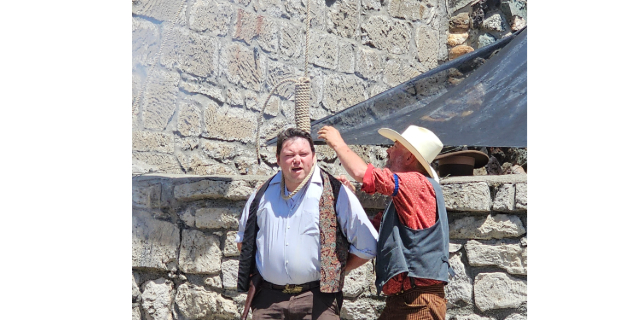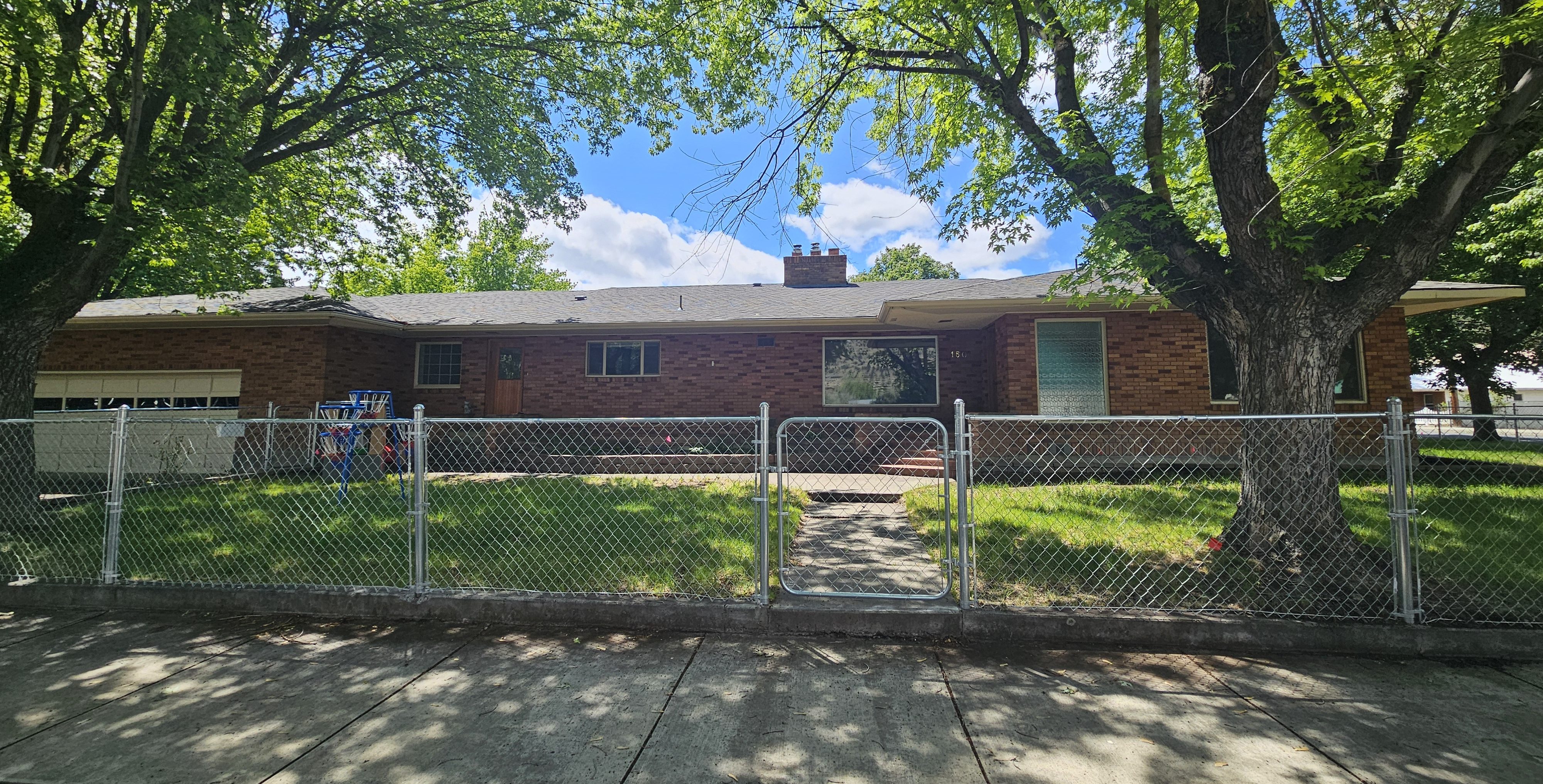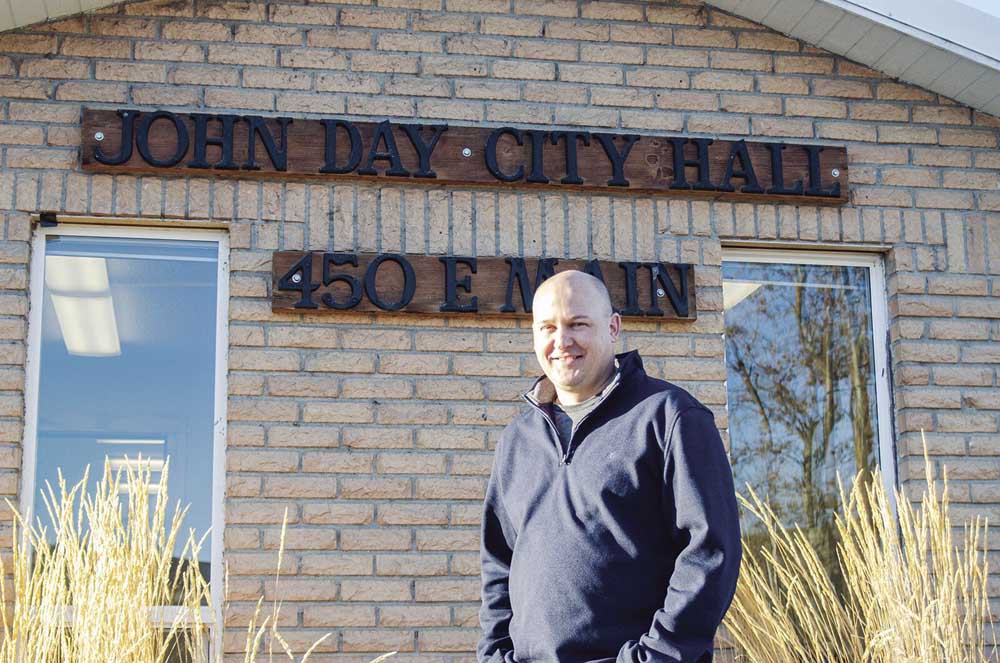Drug Court launched
Published 5:00 pm Tuesday, July 1, 2008

- <I>The Eagle/Scotta Callister</I><BR>District Attorney Ryan Joslin (standing) discusses Drug Court in a community forum held at the Grant County Circuit Courtroom last week. From left, the other participants included Circuit Judge W.D. Cramer Jr.; Kelly McGirr, Drug Court coordinator; John Day Police Chief Rich Tirico, and Dean Hoodenpyl, Community Corrections. Also at the forum to discuss the program were Carol Page, trial court administrator; and Russ Comer and Joe Boyer, Grant County Center for Human Development.
CANYON CITY – Grant County’s new Drug Court program has two goals: to create a safer community and to stop the addictions that keep some residents mired in a life of crime.
Grant County District Attorney Ryan Joslin and members of the new Drug Court team unveiled the plan in a community forum last week at the Courthouse in Canyon City.
Joslin said he and Circuit Court Judge W.D. Cramer Jr. had long wanted to find a different way to deal with the growing number of criminal cases that have drug or alcohol abuse as an underlying factor.
“We were looking for a solution to prevent people from becoming repeat offenders and coming back into the system,” Joslin said.
The county received a $61,525 grant from the Oregon Criminal Justice Commission to implement the program. It will be launched this month. The grant, for the period through June 30, 2009, pays for a half-time addiction counselor at the Grant County Center for Human Development, an extensive urinalsysis program, training and other resources.
Joslin said the program will focus on drug users, but won’t accept dealers or violent offenders. The program is intended only for adults at this point, but Joslin said officials could consider juvenile participation in the future.
In the program, a team of law enforcement, counselors and court representatives will screen potential participants for the program. They will be accepted only after a guilty plea.
The program can handle up to 12 people at a time, and Joslin predicts that “a good portion of them will be repeat customers” of the justice system.
Cramer also sits on the bench in Harney County, and he said that county also is starting a Drug Court program. He is hopeful that both programs will help to address the pervasive link he sees between drugs and crime in the region.
He said that more than 80 percent of the criminal cases seen in the two counties have a drug and alcohol issue involved. However, offenders usually do little time in jail before they are back in the community, continuing their patterns of drug use.
Organizers said the Drug Court will provide more accountability for a longer period of time than through traditional incarceration.
The Drug Court entails an intensive program of treatment, counseling and follow-up by the court. Each participant also will be required to enter a 12-step program, to adhere to probation requirements, and to attend counseling sessions. Expectations and requirements will ramp up in phases over 12-15 months.
Court officials expect to see both successes and setbacks as people move through the program.
“This is no magic bullet. It’s not going to solve everyone’s problems,” Joslin said. “But it provides the setting for people to make a change.
“And that’s a good thing for the community.”
Accountability is a big part of the process, Joslin said. The participants must appear before the judge at least once a week and undergo random urinalysis two or three times a week. They will be expected to demonstrate sobriety and advances in their education or employment, and also to pay any fines in connection with their criminal cases.
Members of the team stressed that the program seeks to change the behaviors and relationships that foster drug use and crime.
Asked how the team would be able to distinguish between people who want to change and those who might just be using the system, team members said that might not be clear at first.
However, several said they expect participants to be more committed as they continue in the program.
“The hope is that through treatment, they see that sobriety is a benefit to their lives,” said Russ Comer, Grant County Center of Human Development.
Kelly McGirr, Drug Court coordinator, said the program goes beyond the individual.
“In a lot of ways, this is a last-ditch effort to put families back together – to put family ahead of drug use,” she said.
Grant County’s Drug Court grant is a one-time grant, but similar programs elsewhere are done with county funding or community support instead of grants. Harney County, for example, did not get a grant but is proceeding with a program.
Joslin stressed that the local community can help make the program succeed. He suggested that businesses and individuals can do so by:
? Donating incentives – such a coupons for burgers or movie rentals – that can be given out by the judge as small rewards for progress.
? Making cash contributions to continue the drug court program.
? Providing extra accountability – more eyes and ears – to ensure that participants are living up to their Drug Court agreements.
? Consider hiring a participant enrolled in Drug Court.
“I have talked to a lot of employers in Grant County, and they say that trying to find employees who can pass a drug test is difficult,” Joslin noted. He and Cramer stressed that Drug Court participants will be asked to pass drug tests several times a week, and they won’t get away with skipping work, either.
“We’re going to know if you don’t show up for work,” said Cramer. “And if you’re an employer, you’re going to want the people in this program. They will be held accountable.”





